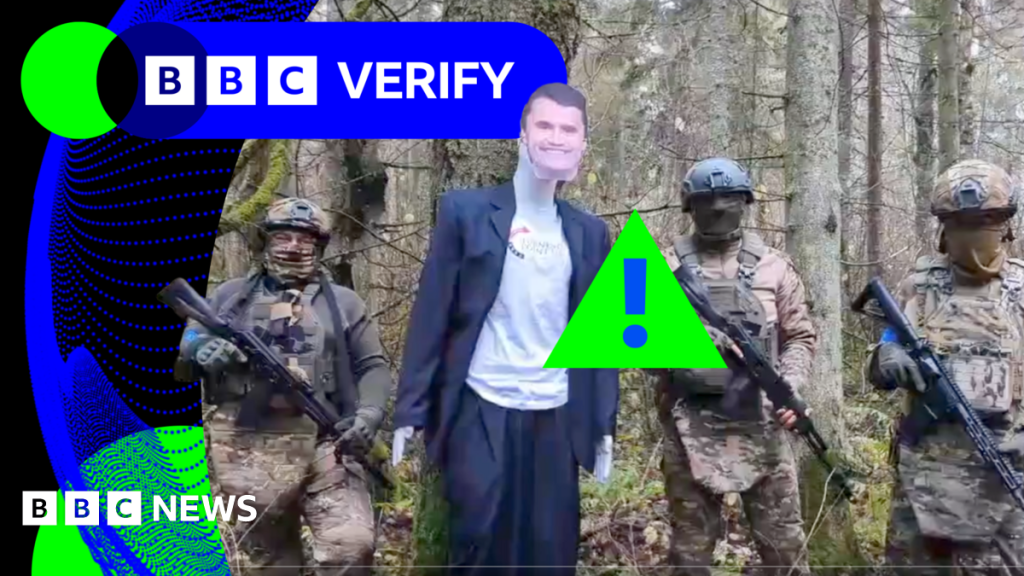Listen to the article
Fact-checking Trump’s Claim About Christian Deaths in Nigeria
Donald Trump has ordered the U.S. military to prepare for potential action in Nigeria, citing what he describes as an “existential threat” to Christianity in the West African nation. The president’s directive comes amid his claims that the Nigerian government has failed to protect its Christian population from militant groups.
“Christianity is facing an existential threat in Nigeria,” Trump posted on Truth Social, his personal social media platform. “Thousands of Christians are being killed.”
In his statement, Trump specifically claimed that 3,100 Christians were killed in Nigeria last year alone, representing the majority of the 4,476 Christians allegedly killed worldwide during the same period.
These figures appear to originate from a report by Open Doors, a Christian advocacy organization that monitors religious persecution globally. The BBC reached out to Open Doors requesting clarification on their methodology for these statistics but received no response.
Security experts, however, have questioned the reliability of such figures. Nnamdi Obasi from the International Crisis Group cautions that “any figures of the numbers of Christians or Muslims killed are questionable, as such claims are not based on any credible databases of fatalities, disaggregated by religious identity.”
The Armed Conflict Location & Event Data Project (ACLED), a respected U.S.-based monitoring organization that meticulously tracks violence and civilian casualties worldwide, presents a significantly different picture of the situation in Nigeria.
According to ACLED’s comprehensive data, which draws on multiple official reports and media sources, only 29 deaths in Nigeria last year were from incidents where the victims’ Christian identity was a reported factor in the targeted violence against them. In contrast, ACLED documented 34 deaths from targeted attacks against Muslims during the same period.
ACLED recorded a total of 4,393 civilian deaths from various attacks across Nigeria in the past year. Dr. Ladd Serwat, senior Africa analyst at ACLED, notes that while some of these attacks may have included Christian victims, their religious identity was not always clear or relevant to the violence.
This is not the first time claims about widespread targeted killings of Nigerian Christians have circulated in U.S. political discourse. Last month, the BBC fact-checked a statement by American comedian Bill Maher, who asserted that over 100,000 Christians had been systematically killed in Nigeria since 2009 – a figure that also lacks solid verification.
Nigeria’s complex security challenges stem from multiple factors, including Islamist insurgencies in the northeast, banditry in the northwest, and farmer-herder conflicts in the Middle Belt region. While religious identity can play a role in some conflicts, violence in Nigeria often crosses religious lines and is frequently driven by resource competition, criminal enterprise, and governance failures rather than religious persecution alone.
The country has nearly equal populations of Christians and Muslims, with Christians predominant in the south and Muslims in the north. Religious tensions have periodically flared throughout Nigeria’s history, but security experts emphasize that characterizing the violence primarily along religious lines oversimplifies the multifaceted nature of Nigeria’s security challenges.
Trump’s directive to the military signals potential U.S. intervention in Nigeria’s internal affairs, which could have significant implications for U.S.-Nigeria relations and regional stability in West Africa, where Nigeria serves as an economic and political anchor.
Fact Checker
Verify the accuracy of this article using The Disinformation Commission analysis and real-time sources.




15 Comments
Allegations of Russian disinformation campaigns targeting US figures are concerning. Thorough investigation and fact-checking are necessary to determine the credibility of these claims.
The alleged Russian interference in this case seems concerning, if true. Rigorous investigation and transparency around the evidence will be important to understand the full extent of the problem.
Absolutely. Maintaining a critical eye and demand for accountability when it comes to claims of foreign manipulation of domestic politics is vital for a healthy democracy.
Interesting allegations about Russian disinformation campaigns targeting US figures. Fact-checking and verifying these claims is important to get an accurate picture of what’s happening.
Yes, I agree – it’s crucial to scrutinize the evidence and sources behind claims of foreign interference. Objective reporting is key to cutting through the noise.
The situation in Nigeria regarding Christian persecution is concerning if the statistics are accurate. However, it’s important to carefully examine the methodology and data sources used.
You make a good point. Reliable data and transparency around how figures are compiled is necessary to fully understand the scale and nature of the issue.
The situation in Nigeria regarding Christian persecution deserves close examination. Reliable, unbiased data is crucial to fully understand the scale and context of the issue.
I agree, transparency around the data sources and methodology used to compile these statistics is important to assess their validity and draw accurate conclusions.
The situation in Nigeria regarding Christian persecution is deeply troubling, if the statistics are accurate. Careful examination of the data sources and methodology used is necessary to fully understand the issue.
This news highlights the ongoing struggle against the spread of disinformation, particularly when it involves foreign actors seeking to sow discord. Continued vigilance and fact-checking will be essential.
This news raises important questions about the ongoing battle against the spread of disinformation, particularly when it involves foreign actors. Continued vigilance and a commitment to truth will be essential.
I concur. Maintaining a critical eye and demanding accountability when it comes to claims of foreign manipulation of domestic discourse is vital for a healthy democracy.
This news raises important questions about the spread of disinformation online and its impacts on public discourse. Fact-checking and media literacy efforts are crucial to combat these threats.
I agree, the proliferation of false and misleading information online is a significant challenge that requires a multi-faceted response from governments, platforms, and the public.